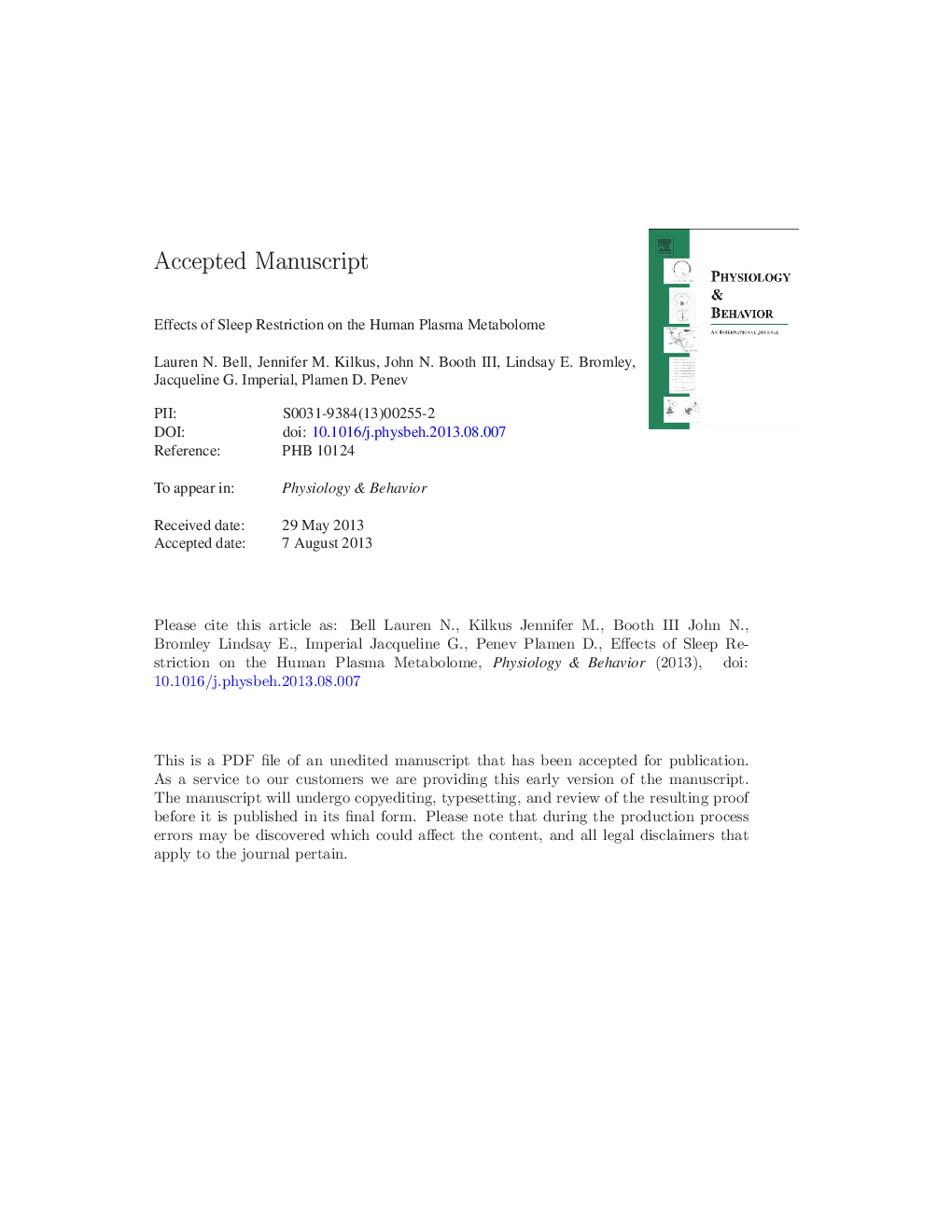| Article ID | Journal | Published Year | Pages | File Type |
|---|---|---|---|---|
| 5924336 | Physiology & Behavior | 2013 | 11 Pages |
Abstract
This study examined the effects of recurrent sleep restriction on the plasma metabolome of adults with familial risk of type 2 diabetes. Eleven healthy adults (6Â M/5Â F; mean [SD] age: 26 [3]Â years; BMI 23.5 [2.3]Â kg/m2) with parental history of type 2 diabetes participated in a two-condition, two-period randomized crossover study at the Clinical Resource Center at an academic hospital. Each participant completed two 8-night inpatient sessions with restricted (5.5-h time-in-bed) vs. adequate (8.5-h time-in-bed) sleep opportunity while daily food intake and physical activity were carefully controlled. A combination of two UHPLC/MS/MS platforms and one GC/MS platform was used to measure 362 biochemicals in fasting plasma samples collected from study participants the morning after each 8-night sleep treatment. Relative concentrations of 12 amino acids and related metabolites were increased when sleep was curtailed. Sleep restriction also induced elevations in several fatty acid, bile acid, steroid hormone, and tricarboxylic acid cycle intermediates. In contrast, circulating levels of glucose, some monosaccharides, gluconate, and five-carbon sugar alcohols tended to decline when sleep was reduced. Recurrent sleep curtailment affected multiple pathways of intermediary metabolism in adults at risk for type 2 diabetes. An elevation in plasma amino acids and related biochemicals was the most pronounced metabolic signature seen in response to 8 nights of sleep restriction.
Keywords
Related Topics
Life Sciences
Biochemistry, Genetics and Molecular Biology
Physiology
Authors
Lauren N. Bell, Jennifer M. Kilkus, John N. III, Lindsay E. Bromley, Jacqueline G. Imperial, Plamen D. Penev,
